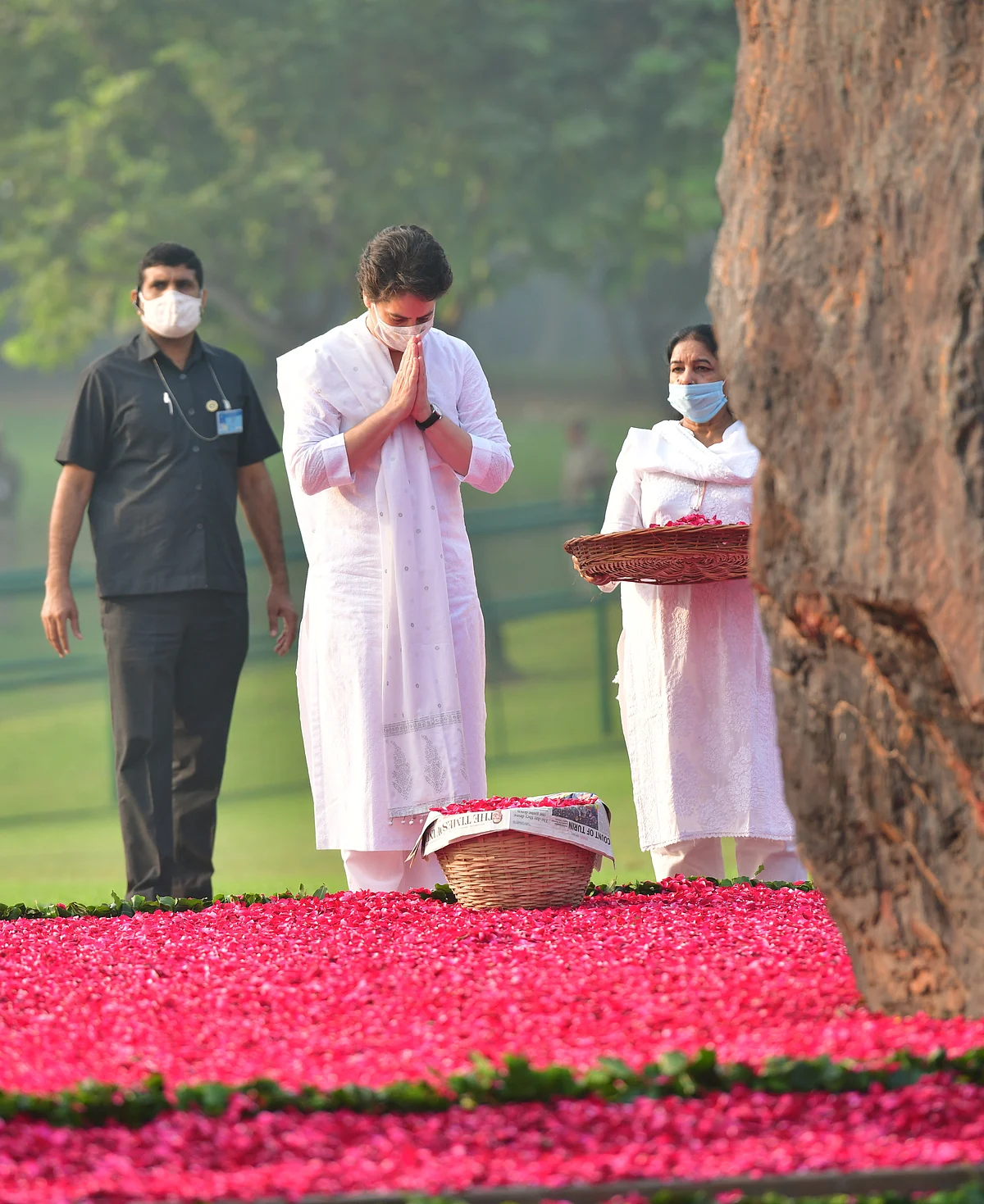Indira Gandhi never lost her faith in India and Indians
Contrary to well-meaning advice to remove armed Sikh guards, the former Prime Minister made it a point to retain them. She had a problem with foreign agencies and Bhindranwale but not with Sikhs

On 31st October 1984, I left for my office around 11 in the morning. I reached the bus stand first and the bus unexpectedly arrived within minutes. I boarded the bus which was not too crowded unlike other days. The roads appeared less crowded than on other days too. I noticed people were moving around in a hurry. There was something distinctly wrong, but I found it difficult to put my finger on it.
As soon as I entered Link House, which housed my office, a senior colleague of mine was rushing out. Noticing me he excitedly asked aloud if I had heard the news. He then proceeded to inform that Indira Gandhi had been shot. Stunned, I asked in a rush, when, where how? Both of us rushed to AIIMS where Indira Gandhi was taken after the shooting incident.
When we reached AIIMS, it was already crowded. As we entered, I noticed hundreds of journalists moving around. Soon it was so crowded that the gates were closed but we stayed put inside. Someone told us that Indira Gandhi was shifted to the sixth floor after being brought to the Emergency by Sonia Gandhi herself. We were also informed that a major operation was underway.
Between 12.30 and 1 pm I noticed The Patriot Bureau Chief John Dayal hurriedly moving towards the exit. I was curious to know why he was rushing out while all other journalists were still in. I asked John: what happened; where are you going ? He just blurted out , ‘Indira Gandhi is dead’.
I was numb for a moment but soon recovered and asked him how he was so certain. He said Mark Tully had just broken the news on BBC radio. John left and as I turned around I saw BBC deputy bureau chief Satish Jacob also moving out. I checked with him and he confirmed that Indira Gandhi was dead. But the AIR and Doordarshan(DD) both maintained a studied silence.
Suddenly, senior politicians of all hues began arriving at AIIMS. A little after 2 pm the then President Giani Zail Singh arrived. He went in but came out soon. When he was leaving, his cavalcade was stoned but he remained composed. A little later Rajiv Gandhi, who had cut short his Calcutta trip, reached the hospital and left soon thereafter. We were told that nobody was shown the body because it was bullet ridden.
The next three days Delhi witnessed a pogrom against Sikhs. I personally watched Sikhs being burnt alive and their houses being ransacked by mobs.
Once the fury subsided, the question that everybody asked was why Indira Gandhi allowed armed Sikhs to guard her despite being aware of the deep resentment and the sense of hurt they nursed following Operation Bluestar. To many, if not most Sikhs, Indira Gandhi was a villain.
The secret was disclosed by none else than The Patriot Chairperson and famous freedom fighter Aruna Asif Ali. She was Jawahar Lal Nehru’s comrade in arms and was very close to Indira Gandhi.
Arunaji told DD that just two days before Indira died, she visited her and noticed armed Sikh security guards at the gate. She recalled that as soon as she entered the room, she told Indira: ‘Indu, why don’t you change your Sikh security guards. It is not safe after Operation Bluestar’. Indira Gandhi did not like the suggestion. She bluntly told Arunaji: “How could you suggest such a thing? It would send wrong signals to the Sikh community.”
The same story was narrated by none other than Indiraji’s close friend Pupul Jayakar. She too had suggested to Indira that she should get rid of her Sikh security personnel or at least disarm them but was rebuffed.
Almost three years after Indira Gandhi’s assassination, I went to see late Kamalapati Tirpathi. Somehow our conversation drifted to Indira Gandhi and Tripathi Ji confirmed that Indira Gandhi did not change her Sikh body guards because that would have amounted to a lack of confidence and trust in the community.
She had taken on Bhindranwale when he became a security threat. But she had no grudge against the community. After all, Indira was a secular leader to the core who never thought in terms of caste, community or creed. She lived for the country and she died for the country, as she declared just a day before in her last speech at Orissa.
This piece was first published on nationalheraldindia.com on October 31, 2017
Follow us on: Facebook, Twitter, Google News, Instagram
Join our official telegram channel (@nationalherald) and stay updated with the latest headlines
- Indira Gandhi
- AIIMS
- Rajiv Gandhi
- Sikh
- Pandit Jawahar Lal Nehru
- President Giani Zail Singh
- Aruna Asaf Ali
- Mark Tully
- Pupul Jayakar
- Kamalapati Tirpathi
- Bhindrawale